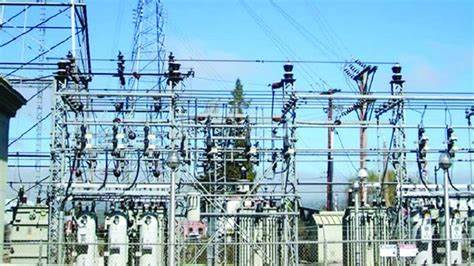
Nigerians across the country have taken to the streets to protest a proposed increase in electricity tariffs, as the government considers implementing a new hike amid ongoing challenges in the power sector. The move has sparked widespread outrage, with citizens and advocacy groups arguing that the increase would place an unbearable burden on households and businesses already grappling with economic hardships.
The Nigerian Electricity Regulatory Commission (NERC) recently announced plans to review electricity tariffs, citing the need to address rising operational costs and attract investment into the power sector. If approved, the new tariff structure could see electricity costs rise by as much as 40% for some consumers, particularly those in urban areas.
The government has defended the proposal, stating that the current tariff regime is unsustainable and that the increase is necessary to improve power supply and infrastructure. However, many Nigerians remain sceptical, pointing to years of unreliable electricity despite previous tariff hikes.
In response to the announcement, protests have erupted in major cities, including Lagos, Abuja, and Port Harcourt. Demonstrators have called on the government to reconsider the proposed hike, arguing that it would exacerbate the financial strain on ordinary citizens.
“We are already paying for darkness,” said Chinedu Okoro, a Lagos-based trader who voiced his concern. “How can they ask us to pay more when we barely get a few hours of electricity a day? This is unacceptable.”
Civil society organizations and labor unions have also condemned the move, warning that it could lead to increased poverty and social unrest. The Nigeria Labour Congress (NLC) has threatened to organise a nationwide strike if the government proceeds with the tariff increase.
Nigeria’s power sector has long been plagued by inefficiencies, with frequent blackouts and an over-reliance on expensive generators by households and businesses. Despite privatisation efforts in 2013, the sector continues to struggle with inadequate infrastructure, poor revenue collection, and mounting debt.
Many Nigerians feel that they are being asked to bear the brunt of these systemic failures. “The government needs to fix the power sector first before talking about increasing tariffs,” said Funmi Adeyemi, a small business owner in Abuja. “We cannot keep paying for services we are not receiving.”
In a press briefing earlier this week, Minister of Power Adebayo Adelabu acknowledged the public’s concerns but emphasized the need for “difficult decisions” to revitalize the sector. He assured citizens that the government is working on measures to improve power supply and reduce the frequency of blackouts.
“We understand the frustrations of Nigerians, but we must also address the financial realities of the power sector,” Adelabu said. “This tariff adjustment is a necessary step toward ensuring sustainable electricity for all.”
As protests continue to grow, the government faces mounting pressure to find a balance between addressing the power sector’s financial challenges and alleviating the burden on citizens. Some analysts have suggested alternative solutions, such as targeted subsidies for low-income households and increased transparency in the management of power sector funds.
For now, Nigerians remain on edge, with many vowing to resist the proposed hike. “We will not accept this,” said protester Grace Eze in Port Harcourt. “The government needs to listen to the people and find a better way forward.”
The NERC is expected to make a final decision on the tariff increase in the coming weeks. In the meantime, the protests serve as a stark reminder of the deep-seated frustrations over Nigeria’s power crisis and the urgent need for meaningful reforms.
Stay tuned for updates on this developing story.



